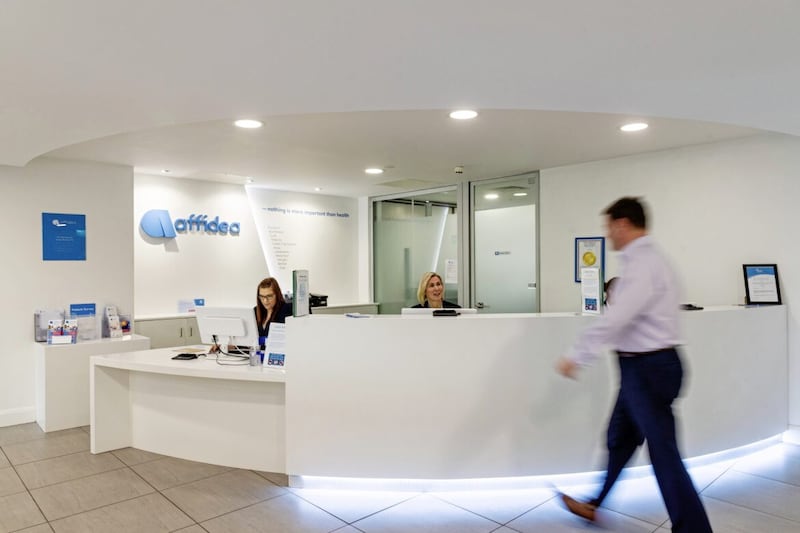A DOCTOR has described how two patients begged for Diazepam pills ahead of arranged ‘punishment beatings’ from paramilitaries.
The harrowing testimony is included in a study published in the British Journal of General Practice, featuring interviews with nine GPs working in Northern Ireland’s most deprived areas.
None of the doctors are named in the study and none of the areas they work in are identified.
One GP told the study of how the legacy of the Troubles is still badly affecting young people more than 25 years after the signing of the Good Friday Agreement.
“I think there’s a lot more we’re seeing now of the next generation, who maybe haven’t directly witnessed anything and we’re seeing more the consequences of them growing up in an unstable childhood environment,” the doctor said.
“And I think that brings a different mental illness that we’re definitely seeing a lot more now through the use of street drugs and alcohol.
“There’s such huge issues with mental health problems and multi-factorial reasons for that, but I think a lot and can be related back to the Troubles.”
They told how two separate patients called the surgery asking for powerful Diazepam sedative drugs with shocking reason.
“I can think of two patients in the past year who received paramilitary beatings and they rang to speak to the GP before, asking for Diazepam in anticipation of these organised beatings, which is definitely a shock to me.
“I suggested speaking to the police, you know. That’s not an option for them. Or they perceive it’s not. I’m not really sure how I manage it, but I know that I don’t need to ask about paramilitary involvement because patients will just tell me.”
- Health minister announces plan to tackle Northern Ireland’s ‘shocking’ health inequalitiesOpens in new window
- Leona O'Neill: Brutal paramilitary attacks must be stopped once and for allOpens in new window
- Newton Emerson: Everyone wants loyalist paramilitary gangs to go away - including UVF and UDA ‘members’Opens in new window
When the doctor had first started working at the practice, they recalled the shock they felt when patients phoned to say they were under death threat.
“I suppose as a GP it’s just part and parcel of what I do every single day and it’s (the legacy of the Troubles) still very prevalent and prominent.”

In rural areas of deprivation affected by the Troubles, GPs also told of how dependency on medication could be more hidden.
“Despite being an area of huge conflict, lots of bombings, the entire town centre being destroyed. We’ve still managed (to not prescribe) addictive substances. Now that’s all very well. Our patients are still using them,” a doctor said.
“They’re getting them from somewhere (but they’re not) getting them on prescription.
“I think there is a drug issue in the area, but it’s not really coming to our doorstep. And I think it’s the stigma of the local country GP surgery. But, like everywhere else, there is a drug issue, but we don’t see it.”
The study also detailed how patients in deprived areas seemed to accept their health would suffer.
“It’s a population where they have an expectation of poor health almost,” a GP said.
“They seem to feel that they shouldn’t be able to walk the length themselves at 60. This is perfectly normal for a significant number of the people.”
"This is my community ... my people ... this is why I became a doctor."
— The British Journal of General Practice (@BJGPjournal) October 29, 2024
GPs who worked in #DeepEnd practices in Northern Ireland tended to personally relate to the area or describe strong feelings of duty & social responsibility https://t.co/Fx0MVxoXuz @danielnbutler @nigelhart
With general practice often the first place patients in deprived areas will turn for support, the GPs said they were asked to help with multiple social issues as like a “medicalisation” of life problems.
“I do feel patients speak to you a lot about their social issues. Which as a GP you can’t really do anything about, so certainly there are times where I think I feel really helpless, these problems that aren’t necessarily in your medical remit but are more social,” one GP said.
On the positive aspects to their work, the doctors spoke of a feeling of loyalty to their communities and a duty to help those who needed it the most.
One commented: “There are easier ways for me to make a living and I’m still here and I actually became a partner. I do it because I love the job. For me, this is proper medicine. This is why I trained to be a GP.”









